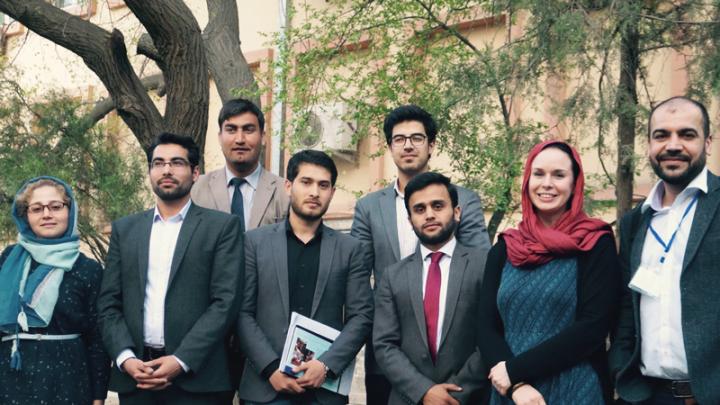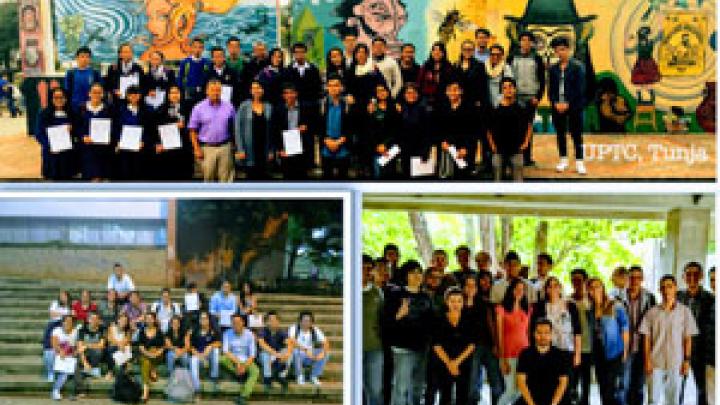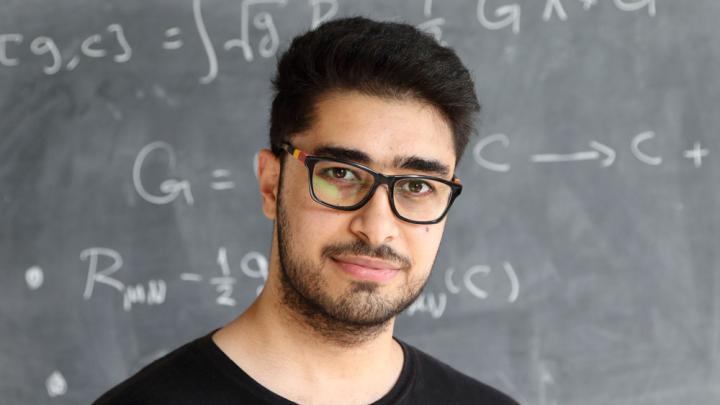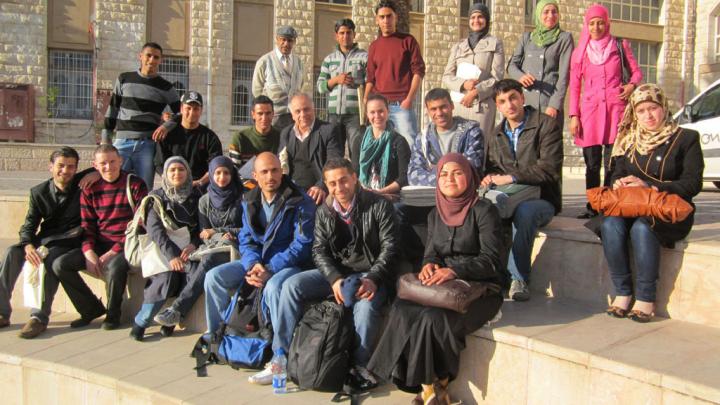Back
Physics Without Frontiers
Next
ICTP Physics Without Frontiers (PWF) works to motivate, train, and educate physics and mathematics university students worldwide, with focus on science and technology lagging countries, to help build the next generation of scientists.
PWF organises projects working with volunteer scientists, who are PhD students, postdoctoral researchers, or lecturers from all over the world, who are passionate about promoting and supporting physics and mathematics. The Physics Without Frontiers Volunteer Network is composed of more than 80 passionate scientists primarily originally from the partnered countries.
Each PWF project is unique, developed with a country's specific needs in mind. A component of outreach and diversity is incorporated into all projects. PWF promotes networking and collaborative environments, and its mentoring scheme is open to all students. PWF has worked with over 10000 students worldwide in 35 different countries!
The call for applications to organise a PWF project is now closed.
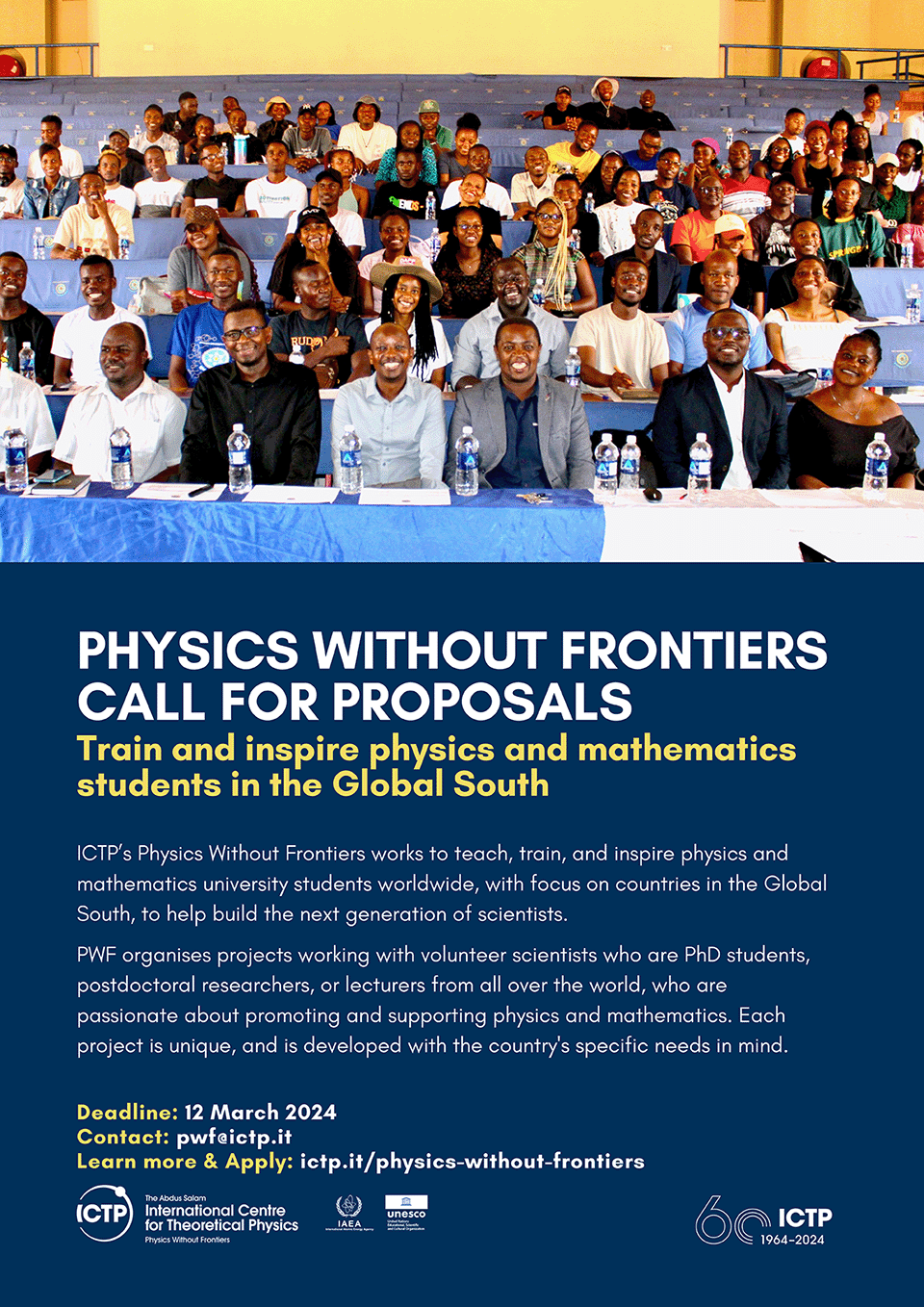
Physics Without Frontiers aims to:
- train university students in core topics and cutting-edge research in physics and mathematics using enquiry-based learning and hands-on sessions by PWF Volunteers who are experts in their research fields, and teach transferable skills in computing, programming and machine learning;
- identify and mentor top students studying at universities without MSc/PhD programmes to go on to further study abroad, such as the ICTP diploma programme, or MSc and PhD placements;
- support physics and mathematics departments in universities with little or no research, by providing faculty training, taught university courses, curriculum support, research infrastructure, efforts towards the public understanding of science, and outreach to high school students and teachers.
Physics Without Frontiers is about breaking down barriers to accessing physics and mathematics research and training. This means connecting with students and scientists worldwide, and with those from less represented groups for example from a poorer economic background, women and girls, ethnic minorities within regions, or those who may lack access due to geographic barriers or isolation within a region, and those from conflict regions.
PWF is coordinated by Professor Bobby Acharya and Dr Kate Shaw.
Contact us: pwf@ictp.it

















